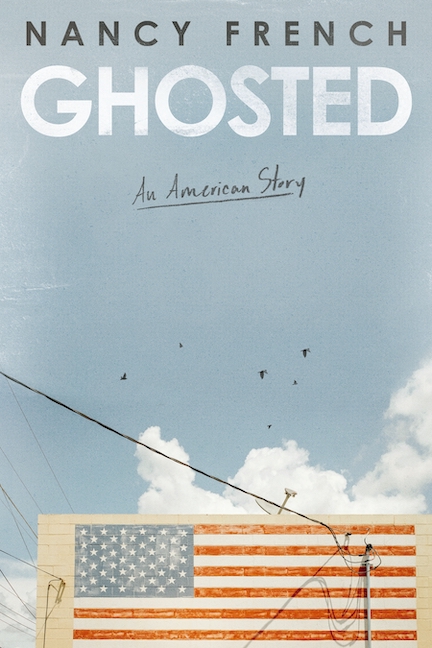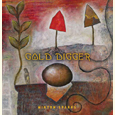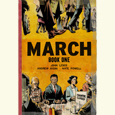They Got the Beat
A new anthology considers the role of women artists in rock-n-roll
p class=”first-para”>Anna Mae Bullock got out of Nutbush; Dolly Parton left Sevierville; Dusty Springfield found Memphis; Taylor Swift and the Dixie Chicks staked their claim on Nashville, and then the globe. Clearly Tennessee played a profound role in the seismic impact women made on the world of music: rock, pop, soul, and country. Women Who Rock: Bessie to Beyonce, Girl Groups to Riot Grrrl, Evelyn McDonnell’s gorgeous new coffee-table book with illustrations by four impressive women visual artists, traces the evolution of those Tennessee women—and others—in the world of music.

When Evelyn McDonnell and Nashville-based music critic Ann Powers created Rock She Wrote, 1995’s anthology of women rock critics, artists, and writers, it was both a document of criticism from the 1960s through the ‘90s and a place for the experience of women critics to be collected. The book considered music in terms of culture, sex, gender orientation, feminism, and racial realities. More importantly, it was genuinely fun to read, presenting a fresh perspective on “music criticism.”
Almost a quarter century later, in a world awash in the female reckoning of Time’s Up and #MeToo, Women Who Rock draws on the work of thirty-four contributors of varying ages, occupations, and genres. As an editor, McDonnell has curated an authoritative journey through a woman’s place in various strains of modern music. She brings together an illustration from Jefferson Airplane/Starship vocalist Grace Slick; noted professors Daphne Brooks, Vivien Goldman, Salamishah Tillet, and Gayle Wald; historian Holly George-Warren; authors Gillian G. Gaar and Caryn Rose; producer/artist Peaches; rocker Wendy Case; punk legend Alice Bag; curator Annie Zaleski; and installation artist/oral historian Lucretia Tye Jasmine. The combination of such disparate interests and approaches makes genres comfortable and engaging for readers who aren’t already invested in hip hop, country, punk, or pop.
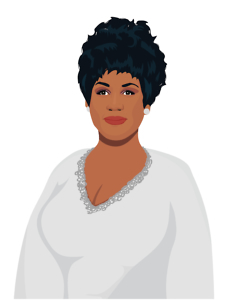 The book’s less-famous subjects include June Millington, founder of the all-girl group Fanny, pop duo Tegan and Sara, The GTOs, Laura Jane Grace, Poison Ivy of the rockabilly band the Cramps, plus icons like Janet Jackson, Joni Mitchell, Madonna, Janis Joplin, Gwen Stefani, and Whitney Houston. Even at the book’s impressive 400+ pages, it would be impossible to include everyone, and notable exceptions include June Carter Cash, Gladys Knight, Meshell Ndegeocello, Loretta Lynn, The Runaways (though Joan Jett gets an essay), Rosanne Cash, and Teena Marie. Nevertheless, the diversity here thrills.
The book’s less-famous subjects include June Millington, founder of the all-girl group Fanny, pop duo Tegan and Sara, The GTOs, Laura Jane Grace, Poison Ivy of the rockabilly band the Cramps, plus icons like Janet Jackson, Joni Mitchell, Madonna, Janis Joplin, Gwen Stefani, and Whitney Houston. Even at the book’s impressive 400+ pages, it would be impossible to include everyone, and notable exceptions include June Carter Cash, Gladys Knight, Meshell Ndegeocello, Loretta Lynn, The Runaways (though Joan Jett gets an essay), Rosanne Cash, and Teena Marie. Nevertheless, the diversity here thrills.
Presented in chronological order, with three-page essays that include biographical information, key songs and albums, Women Who Rock is a survey course for people curious about women’s journey through contemporary pop music. There’s a transgressive sense that self-expression drives these female artists, who in turn embody a range of possibility for their female fans: Debbie Harry’s icy punk progressiveness, Ronnie Spector’s bad-girl posture, Odetta’s social consciousness, Pussy Riot’s full-frontal protest.
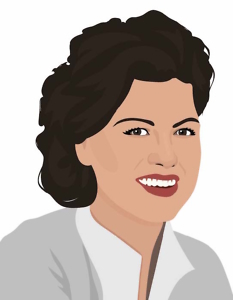 Ann Powers contributes considerations on folk/protest powerhouse Joan Baez and disco’s diva/dreamer Donna Summer. Both women sought to stretch their work and their careers, and Powers showcases the kind of stretch that genuine talent can afford in the spotlight of very different careers. As Powers writes of Summer, “Her gospelized singing style and African American identity have led to her being categorized as an R&B artist; yet she began her career in theater and rock, and remained a restless explorer of styles ranging from country to new wave to European synth-pop.”
Ann Powers contributes considerations on folk/protest powerhouse Joan Baez and disco’s diva/dreamer Donna Summer. Both women sought to stretch their work and their careers, and Powers showcases the kind of stretch that genuine talent can afford in the spotlight of very different careers. As Powers writes of Summer, “Her gospelized singing style and African American identity have led to her being categorized as an R&B artist; yet she began her career in theater and rock, and remained a restless explorer of styles ranging from country to new wave to European synth-pop.”
Jewly Hight, another Nashville-based critic, presents the Dixie Chicks as country-style riot grrrls in an essay that goes beyond the controversy of Natalie Maines’s career-crippling criticism of the U.S. invasion of Iraq. Hight makes a case not just for the facts of the group’s career but also for the way their brash courage and musical aggression influenced Miranda Lambert, Maddie & Tae, Little Big Town, and Kacey Musgraves: “Their down-home angle on audaciousness was an expression of personality that connected with country audiences—who needed to believe and identify with performers’ personas before buying in to them—and young women who were used to pop stars’ demonstrations of empowerment and alt-rockers’ display of autonomy.”
That is the genius of McDonnell’s book: more than a series of bios, its essays offer context and impact. Women Who Rock embraces each artist’s cultural moment but also advances their lasting importance and influence. If you have daughters, sisters, or hip friends who love the work of women in any genre, this is a gift to give. Beyond the original art, there is original thought interlaced with great research and passion for music. It’s a book that deepens a reader’s appreciation for why female music matters.
 Holly Gleason is a long-time music critic whose work has appeared in Rolling Stone, the Los Angeles Times, The New York Times, CREEM, No Depression, and Pollstar, and she serves as the Nashville editor of HITS. Gleason edited Woman Walk the Line: How The Women of Country Music Changed Our Lives.
Holly Gleason is a long-time music critic whose work has appeared in Rolling Stone, the Los Angeles Times, The New York Times, CREEM, No Depression, and Pollstar, and she serves as the Nashville editor of HITS. Gleason edited Woman Walk the Line: How The Women of Country Music Changed Our Lives.
